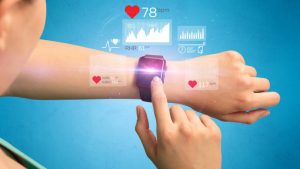Technological growth in health and wellness has offered a glut of new digital services and devices for consumers. The consumer demand for wearable devices alone increased by 27% in 2020 compared to 2019 numbers. Despite this, new evidence suggests that wearable devices used to monitor and track health and fitness are not necessarily aiding physicians in medical treatment and insight as previously thought.
Forrester Research, the same group that predicted, 5 years ago, that one in three Americans will have a wearable health device by this year, now returns with an analysis of what effect this trend in health actually has on improving long-term health solutions.
The report, published last month, is a collection of interviews from over 40 patients and physicians on the perceived effectiveness that wearable devices have had on patient outcomes. The report stated that the results delivered by devices like the AppleWatch or a Fitbit, is a collection of data that is only practical for self-evaluation. Though many may use these devices to track their own progress and habits and get an idea of how to improve them, many physicians are skeptical to use the data acquired by medical devices remotely to contribute to their diagnosis.
The main problem physicians are facing is potential information corruption as a result of glitching or improper execution. Many medical professionals hesitate to analyze this type of remotely collected data, let alone apply it to treatment options, as there are too many variables that can unintentionally create false results. Many who have used health monitoring devices to track workouts or blood pressure know the struggle of a device accidentally picking up steps from a moving vehicle, or a sudden blood pressure difference based on a change from sitting to standing.
The report cited that there are some devices currently in development that may bring more promising results. These devices range in application from stroke recovery software to technology to monitor neurological disorders like Alzheimer’s. The true effectiveness of such devices is yet to be seen but, according to Forrester, it will require a level of technological accuracy to rid physicians of uncertainty.























